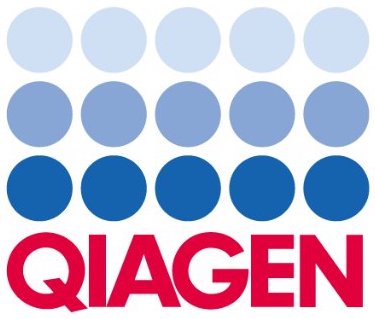MEDICAL RECORDS
Over 200 pages of medical records, including Previous genetic results, Blood work and Clinical labs.
The patient has made his data available under the MIT License. [Note: access to data is limited to invited participants].
Gene DX Test Results.
Smith Family Clinic - 1.
Smith Family Clinic - 2.
Baylor Genetics Workups.
New York Presbyterian Chart.
Columbia Undiagnosed Program.
Hudson Alpha Lab Results.
INSTRUMENT DATA
1) Long Read Whole Genome - Provided by Invitae
Instrument: PacBio Sequel.
Data Types: FASTQ, (BAM/VCF TBD).
Data Details: TBD Sequel performance metrics.
2) Short Read Whole Genome - Provided by Invitae
Instrument: Illumina Novaseq.
Data Types: FASTQ, (BAM/VCF TBD).
Data Details: ~40x coverage; Paired End 150bp reads; PCR-free.
3) Exome - Provided by Invitae
Instrument: Illumina Novaseq.
Data Types: FASTQ, BAM, VCF.
Data Details: Paired End 150bp reads; Insert size ~300bp; ~150x Median Coverage.
4) Targeted Panel - Provided by Invitae
Instrument: Illumina Novaseq.
Data Types: FASTQ, BAM, VCF.
Data Details: Paired End 150bp reads; Insert size ~300bp; ~350x Median Coverage.
5) Metabolomics - Provided by Invitae and OpenOme
Details coming.
6) Proteomics
Note: This data set is wont make it to us in time for the event. It will be available ASAP after the event.
7) Long Read Whole Genome - Provided by Dante Labs.
Saliva DNA sample collected via DNA Genotek Oragene 600 Series.
DNA extracted using Qiagen QiaSymphony.
SQK-LSK109 Nanopore library preparation, using 1ug of input DNA.
Sequencing carried out on an Oxford Nanopore PromethION, the run lasted 64 hours.
8) Exome - Provided by patient.
GeneDX
CASE BACKGROUND SUMMARY
Note: Excerpted from the medical records. complete medical record available to participants.
“In his infancy, JCM reported a history of vomiting after breastfeeding and FTT (Failure to Thrive).
Since childhood, JCM has had a significant issue in weight gain despite adequate caloric intake, though his height has always remained on the curve. He has reported cases of nausea, stomach aches and an overall aversion to food. As a child, JCM had minimal muscle mass and was easily fatigued.
In his 20’s, JCM began to experience daily lower abdominal pain characterized by burning and nausea. These symptoms were followed by abdominal distension with minimal food intake.
He was diagnosed with visceral hypersensitivity.
It was also during this period of time when JCM developed chronic vomiting when he could vomit up to 5 times daily. Through extensive laboratory work done on his samples, including multiple EGDs, small bowel x-ray series, CT enterography, capsule endoscopy, nuclear gastric emptying studies and antral duodenal motility study, notable findings for delayed gastric emptying were found, along with suspicion of gastroparesis based on antral duodenal motility study, duodenal ulcer, and a mild increase in IELs in full-thickness jejunal biopsy.
JCM had his uvula operated on after consulting with an ENT, who told him it was causing his vomiting episodes. The uvula was folded upon itself and stitched together, resolving JCM’s issue with vomiting, but other GI issues still remain.
Currently, at age 33, JCM is 5’10” tall and weights 109lbs. The peak of his weight was at ~124lbs, during which he frequently used cannabis and benzodiazepines. JCM has attempted to build muscle mass to increase his body weight by lifting and increase protein intake; however, these attempts were no successful due to his GI issues and abdominal pain. Additionally, JCM has reported knee pain, several disc herniations, and shoulder dislocations.
To deal with his symptoms, JCM has tried many medications, including PPIs, H2 blocker, low dose E-Mycin, Baclofen, Cymbalta, Nortriptyline, Amitriptyline, Mirtazapine, Zofran, Remeron, Etopiride, Cinitapride, Lyrica, Gabapentin, Benzodiazepines, prednisone, and IVIG. He reported that the benzodiazepines helped the most with his abdominal pain and burning; however, he did not like the other side effects and thus has not taken this medication for the past several years.
JCM tried adipose stem cells and had significant improvement in his muscle tone and mobility, but this wore off in a year.
He also reports undergoing two fecal transplants that he administered to himself and were not overseen by a physician and he did not get any symptom relief.
JCM has had extensive biochemical evaluations and genetic testing. His biochemical evaluations in the past were revealing increased urinary lactate.
Serum markers have been inconsistent, with high ethylmalonic acid and mild metabolic alkalosis.
Whole exome sequencing was revealing for multiple variants of uncertain significance as summarized below.
Based on the variants in his ALDOB gene, he might have HFI and abided by a strict diet for over a month with no improvement in symptoms.
Review of systems is otherwise notable for frequent urination and constant pelvic discomfort. JCM does not report pain when urinating, and instead reports burning pain in his abdomen. He has never had a full urology evaluation.
He reports a history of frequent fungal infections on his chest and multiple plantar warts. He had a normal cardiology workup including normal echo and stress test.”


















